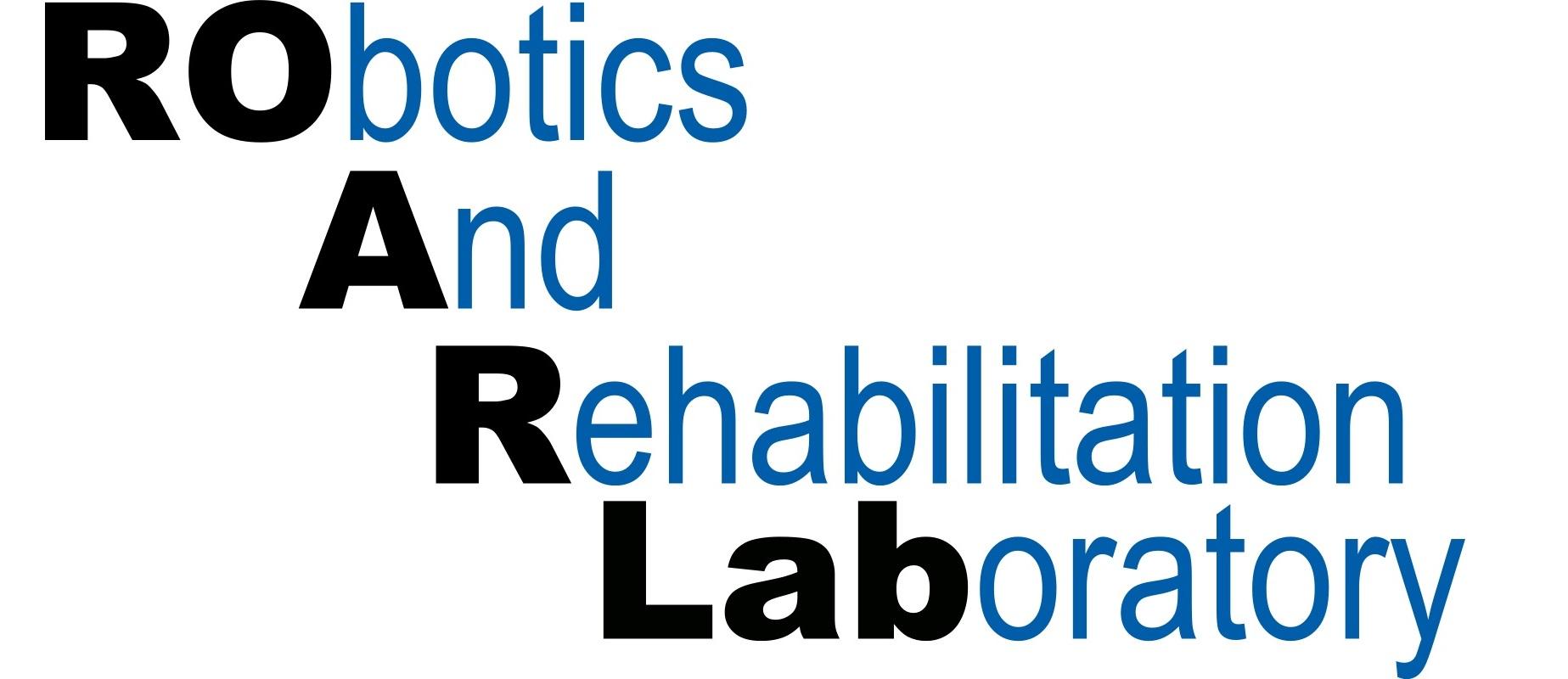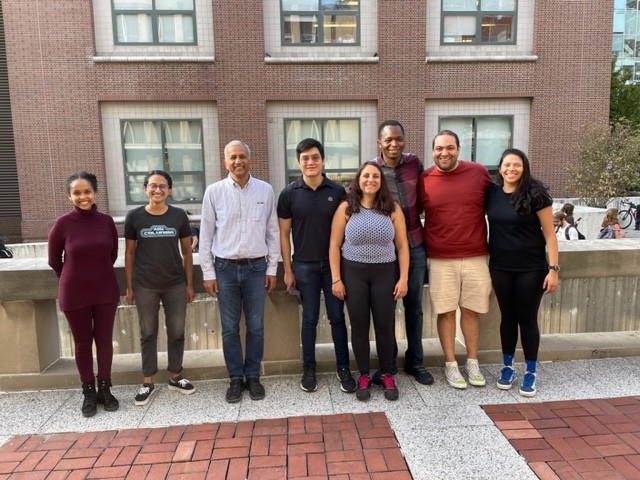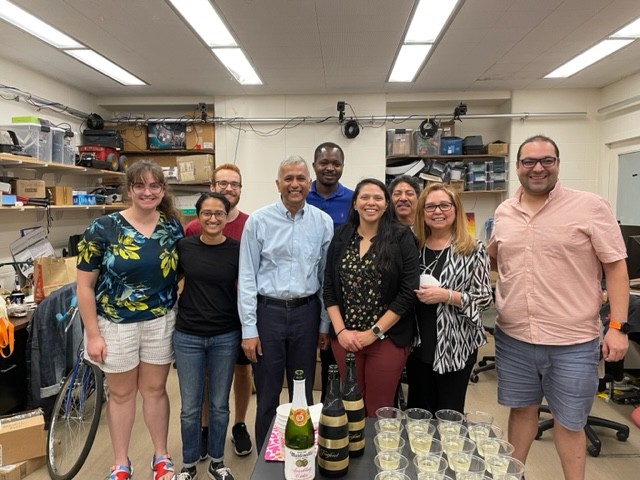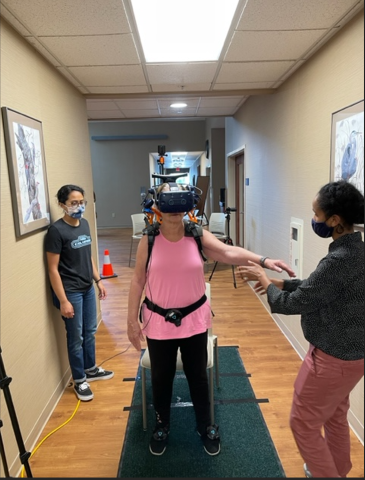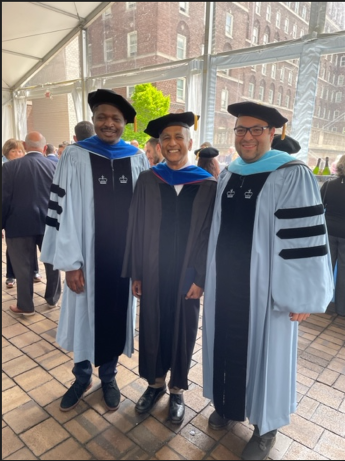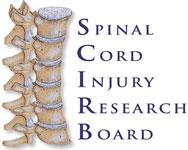About Us
The Robotics And Rehabilitation (RoAR) Lab is focused on developing innovative robots and methods to help humans relearn, restore, or improve functional movements. The lab is housed both in Engineering and Medical campuses of Columbia University. Led by Dr. Sunil Agrawal, the lab works actively with clinical faculty from Columbia University Medical Center and hospitals around New York city. Human studies have targeted elderly subjects and patients with stroke, cerebral palsy, spinal cord injury, Parkinson’s disease, ALS, and others.
Open Positions
The Robotics and Rehabilitation (ROAR) Lab is looking for motivated, hard-working, and curious applicants for a post-doc position. Candidates will bring contemporary scientific approaches and be motivated to contribute intellectually in a dynamic team environment, interacting with others on a variety of projects. These projects could include, but are not limited to, assistive and rehabilitative devices for the neck, lower limbs, pelvis, or VR environments to train or assess upper limb function, dual task effects, and cognitive abilities, or stability and response to perturbations while treadmill walking, overground walking, and in a virtual environment.
We will be using a combination of lab-built systems as well as gold standard equivalents to tackle research questions. Post-docs will be encouraged to lead independent projects resulting in high impact publications, present at conferences and prepare for long-term careers in academia or industry.
If you are interested in working on exciting problems related to rehabilitation robotics, email Dr. Agrawal at [email protected] with a short description of your past research experiences and a resume/CV.
Research Projects
Perturbation Training
Balance training is aimed at reducing falls risk. Elderly subjects and patients with movement disorders exhibit a high risk for falling compared to their young and healthy peers. Our group has developed novel paradigms where we apply different types of perturbations while subjects are standing or walking on a treadmill. These paradigms have been used to characterize and augment stability in different population groups, including elderly, Parkinson's, Cerebellar ataxia, and others.
The Trunk Support Trainer (TruST) project is recruiting!
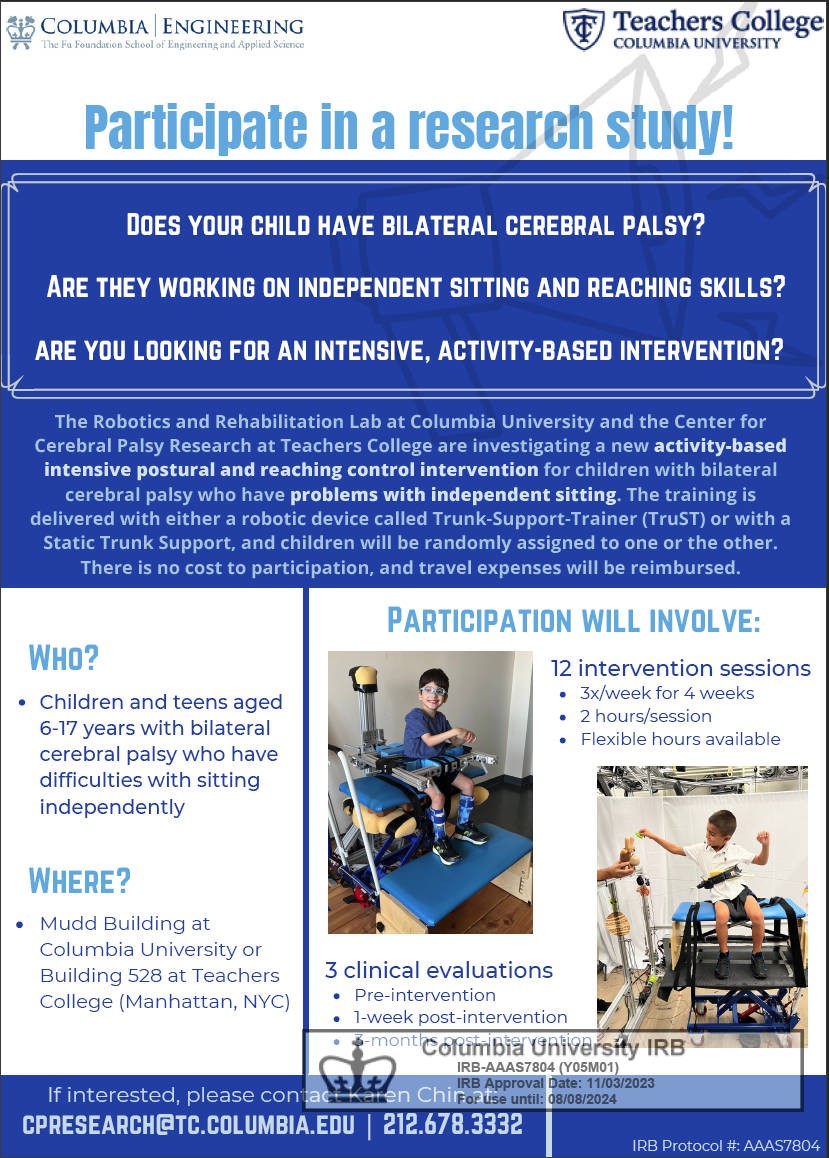
Support
Support for our research has been provided by these sponsors.

